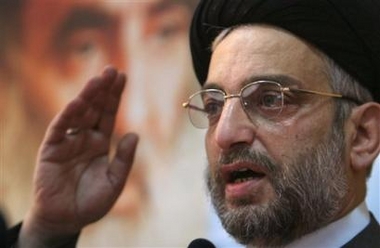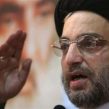
The Implications of Abdul Aziz al-Hakim’s Death for Iraqi Security
Publication: Terrorism Monitor Volume: 7 Issue: 27
By:

Abdul Aziz al-Hakim, the head of the Supreme Council of Iraq (ISCI), died on August 26 at a hospital in Tehran, where he had been receiving treatment for lung cancer since May 2007 (Fars News Agency, August 27, Kayhan, August 27; September 2). His death came days after the announcement of an electoral alliance led by his party and other Shi’a factions, known as the Iraqi National Alliance (al-Ittilaf al-Watani al-Iraqi – INA; the new coalition replaces the United Iraqi Alliance – al-I’tilaf al-Iraqi al-Muwahhad – UIA) (Etemad, August 24). The Shi’a-dominated alliance is powered by a renewed ISCI led by the young and untried ISCI deputy leader, Ammar al-Hakim. His skill and experience will be tested as the party attempts to resurrect itself after its defeat in the early 2009 provincial elections (Tabnak, August 31). Most importantly, the new political bloc, which also includes the Sadrists, Fadhila and other smaller Sunni, Turkmen and Christian parties, excludes Prime Minister Nuri al-Maliki’s Dawa Party, whose popular support remains relatively strong, especially in the Sunni provinces, parts of the Shi’a southern regions and in the capital city (Tabnak, September 1; Etemad, August 30).
Amidst these political developments, Iraq continues to face a surge of violence since the June withdrawal of U.S. forces from major cities around the country (Azzaman, August 14; al-Jazeera August 28). Although still limited in scale in comparison to 2006, the latest outburst of violence raises new concerns about the possible emergence of sectarian conflict exacerbated by ethnic tensions, especially in Kirkuk and Mosul, where Arab nationalists like Prime Minster al-Maliki seek to thwart Kurdish claims over the oil-rich region. With tensions on the rise, the changing balance of power within the Shi’a political scene points to more uncertainty with the approach of next year’s general elections.
Hakim’s apparent successor, Ammar al-Hakim, was recently asked for his views on the increase in violence during an interview with a Spanish daily: “We hold Saddam’s Ba’ath primarily responsible in such processes and we believe it sent a clear message regarding the invalidity of the alleged resistance to the occupier; this fact makes it imperative for each who bears his weapons to give up, especially with the troops out of the cities now. We know that the main aim [of the insurgents] is to return Iraq to square one, but this cannot be achieved; they want this effort to remove an important card from the political process because it had achieved security in Iraq, but our confidence is in a great God and in the capabilities of our security [services] and the military government” (El Mundo, July 1, 2009).
In reality, Hakim’s demise has now created a power vacuum that could lead to major changes within Iraqi politics:
• It could provide an opportunity for more radical Shi’a groups like the Sadrists or Hadi al-Amiri’s Badr Organization to claim power, while more moderate factions (i.e. those without militias) may feel intimidated and marginalized within the new Shi’a-led alliance.
• Within the ISCI, Ammar might merely serve as a figurehead, while the hard-line old guard within the party, led by figures like Bayan Jabr (a former Badr Corps commander), Shaykh Jalauddin Saghir (senior cleric in Baghdad’s huge Buratha mosque) and Hadi al-Amiri (head of the parliamentary defense and security committee) could take charge of the party, contributing to a sectarian type of politics reminiscent of the volatile early post-war period.
• The greatest impact Hakim’s death might have is in undermining Maliki’s influence in the Shi’a electoral landscape, possibly leading to his downfall at the hands of the ISCI, now at the head of the new Iraqi National Alliance.
The main implication of these changes is the possibility of an increase in hard-line Iranian influence led by the Revolutionary Guard, on which the ISCI and Sadrists have become increasingly reliant for financial and military support. This is already evident in Tehran’s bold attempt to reconcile the tension between Baghdad and Damascus over regional security. The Iranian diplomatic mission is led by the Iranian ambassador to Iraq, Hussain Kazemi Qomi, a former Revolutionary Guard officer who maintains close ties with ISCI (Fars News Agency, September 3). A shift towards more Iranian-leaning Shi’a politics could anger Iraq’s Sunnis, especially the nationalists, who might see the changing political landscape as a threat to their interests. Although it remains to be seen whether al-Maliki will eventually join the new INA, Iraq will likely witness more violence ahead of the elections as Baghdad gradually seeks to break away from the sectarian politics represented by Abdul Aziz Hakim and his Shi’a federalism.





